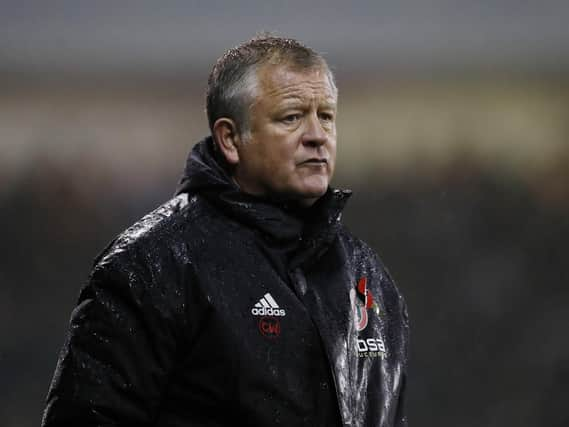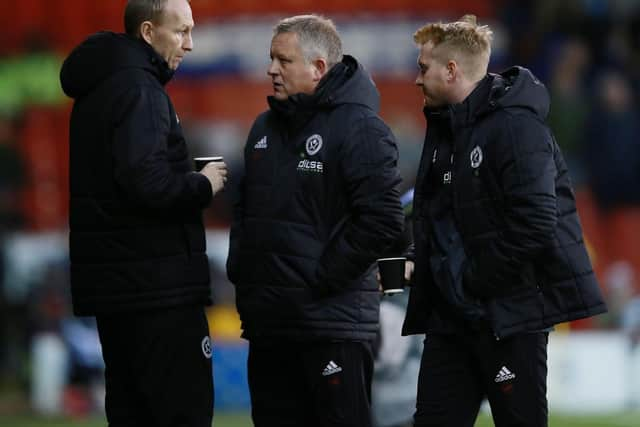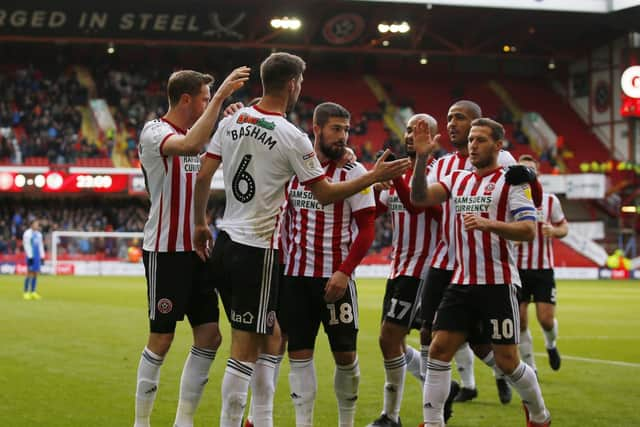Sheffield United: The analysis responsible for persuading Chris Wilder to change his transfer policy rather than tactical approach


The point of the exercise, he recollected earlier this week, was to discover why his team had faded during the second-half of the campaign. Identify any failings, tactical or otherwise, responsible for its slide from first to 10th in the space of six short months.
After scrolling through countless spreadsheets, having spent more hours than he cared to remember analysing statistics and burning the midnight oil, United's manager reached a conclusion. The root of the problem was depth, not formations. Which explains not only his approach to the summer transfer window but, as coaching staff begin finalising their latest shopping list, the forthcoming one too when one, possibly two, new players are set to be targeted rather than a major influx of fresh talent.


Advertisement
Hide AdAdvertisement
Hide Ad"The way we went about things didn't hinder us last year," Wilder said. "People will have their own thoughts on what happened back then but for me, having looked at everything, it was quite simplistic. It was a pretty simple thing.
"All the stats added up. The distances we were running, the chances we were creating, the entries into the opposition penalty area; they were all pretty much the same. "So because those had all stayed solid, for me it came down to not being strong enough in terms of our squad. We didn't produce, or take advantage of, enough big moments."
When Wilder talks about strength, he is referring to quality not numbers. Which partly reveals why United chose to trade before the August deadline rather than simply bulk-up. (Events in the boardroom, where their two co-owners remain at loggerheads, also shaped this policy).
So when neither Lee Evans nor Ryan Leonard proved capable of filling the injured Paul Coutts' boots, without a major change of tactics, both were moved on and one player was brought in. Oliver Norwood, whose loan from Brighton and Hove Albion will shortly be made permanent, has been such a success that the fit again Coutts, once regarded as indispensable, now faces a battle to regain his starting place.


Advertisement
Hide AdAdvertisement
Hide AdWith United entering the international break fourth in the Championship, only three points behind leaders Norwich City and boasting the same goal difference, Wilder's hunch has proved correct. However, with his share of the £11.5m fee they received for David Brooks still intact, United should be able to attract a new centre-forward without making sacrifices elsewhere in the team. Providing they retain a tight grip on wage costs during contract negotiations with the likes of Enda Stevens, Kieron Freeman and possibly Jack O'Connell.
Richard Stearman and Martin Cranie provide experienced cover and competition for fellow centre-halves John Egan and Chris Basham while the imminent return of Jake Wright and Kean Bryan from injury will increase United's defensive options. In midfield, they averaged 1.1 points per game last term after Coutts had been ruled-out compared to 2.1 before. Following Norwood's arrival, this figure rose to 1.9, despite facing both City and big-spending Aston Villa.
"From my eyes, the results weren't as good compared to the first part of the season, but a lot of the other things were just as good," Wilder, whose side return to action at Rotherham United later this month, said. "We have to keep doing what we are doing, and hopefully a strengthened squad and more big moments will make us better than we were last year."